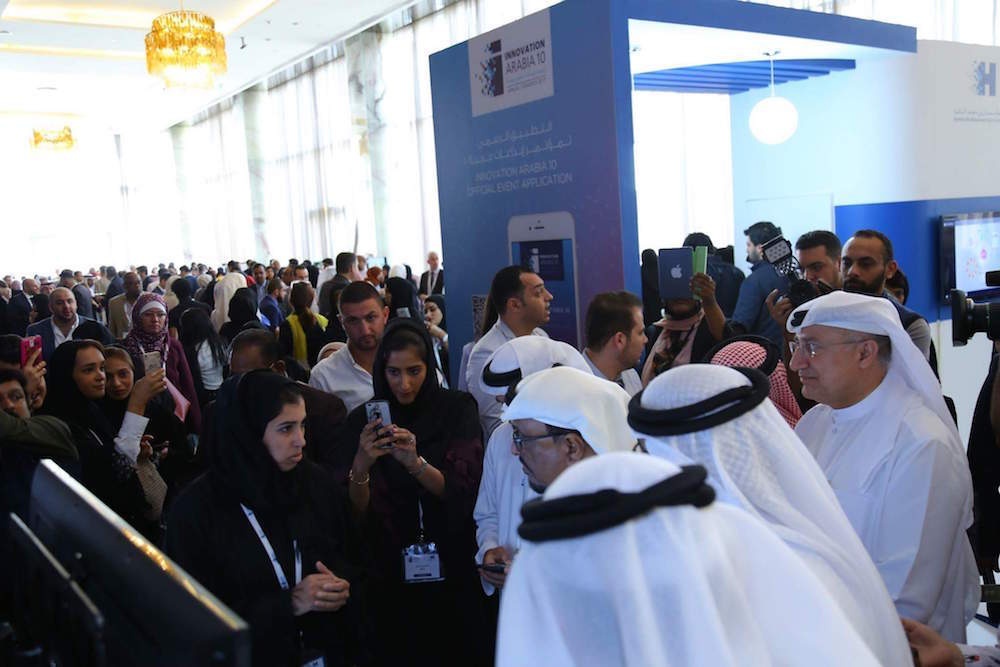Young Emiratis use technology to improve quality of life in Dubai

The UAE entrepreneurial ecosystem is full of expats.
Not hard to believe when taking in account the country’s population is mostly composed of foreigners: by 2011 88 percent of the UAE’s population was born in another country.
So, where are the Emiratis?
Emirati national and Dubai native Aisha Saeed Harib, who founded a social enterprise called Social Bandage, and was named a Rising Talent by the Women’s Forum for the Economy & Society, is one of the individuals answering that question.
Harib began using tech to help others when she created Social Bandage. Harib sold t-shirt’s to fund her initiative, which was to donate wheelchairs. Her aim with this Give A Wheelchair campaign was to change the way donations are conducted by younger generations of people in the UAE.
Following the successful venture, which provided over 800 wheelchairs to those in need in India, Kenya and the UAE, and other charitable initiatives like a food drive, Harib decided to delve deeper into the world of technology and innovation while focusing more on corporate social responsibility (CSR).
Harib enrolled in the Hamdan Bin Mohammed Smart University (HBMSU) to pursue her master’s degree, and was one of the students showcasing their projects at the university’s marquee annual Innovation Arabia event in March.
She showcased her CSR platform, which allows companies to track their budgets in regards to where and when they’ll invest their funds allocated to initiatives that give back to society.
Food for thought
Harib is one of several young Emirati nationals using technology to make a positive difference in society.
At a time when obesity in the UAE is becoming a bigger issue and restaurant openings are one of the most common symbols of Dubai decadence, the free mobile app Fittion (yet to be launched officially) couldn’t have arrived sooner. The app, created by the health-conscious Ali Almarzouqi, encourages healthier eating choices by showing users the calorie count of meals served at various Dubai restaurants.
Almarzouqi polled testers of the app in Dubai.
“The interviews with the users went great: they liked the idea of an app like Fittion because they always see fast food ads in the street and would love to order healthier alternatives, especially during the weekdays,” he said.
He also stated that he expects more of his fellow Emiratis from his under-30 generation to make an impact in the app ecosystem. “There is a wave of Emiratis teaming with international cofounders to build apps and I expect there will be more from this new generation,” said Almarzouqi, citing the grocery delivery app Instashop and smart sensor startup Tayar, as examples.
Emiratis enabling entrepreneurs
Seed Group CEO Hisham Al Gurg and TECOM group managing director of media Majed Al Suwaidi, are playing their part in buoying up the ecosystem, through mentoring, funding and infrastructure.
Alsuwaidi, who also heads Dubai Production City, said there would be two new additions to the In5 family coming in spring 2017: two in5 Centre startup hubs for entrepreneurs focused on design and media.
“We are supporting the government's vision of building a strong knowledge economy,” he told Wamda. “If you like to work with your hands, our in5 Design hub gives you opportunities to come and learn the best practices for building your company. And our in5 Media facilities will give you the opportunity to create audio and video content.”
Al Gurg added that a stronger mentor system needs to be in place in his country. “What are the reasons mentorship programs are not sustainable in this region? We spoke to 80 mentors. They said they want to mentor for a short amount of time: a few weeks or a month. Because at the end of the day, they are busy: they don't want to invest unless they get something out of it,” said Al Gurg. “They eventually said they want to get paid tens of thousands of AED per hour; based on the value of their services relative to their executive-level salaries.”
With the rise of organizations like the Emirati Entrepreneurs Association in Dubai led by Emirati businessman Jassim Al Bastaki and the Mohamed Bin Zayed Future Majlis For Future Generations in Abu Dhabi, it appears that there may be more homegrown success stories on the way in the UAE.
Feature image via HMBSU.


